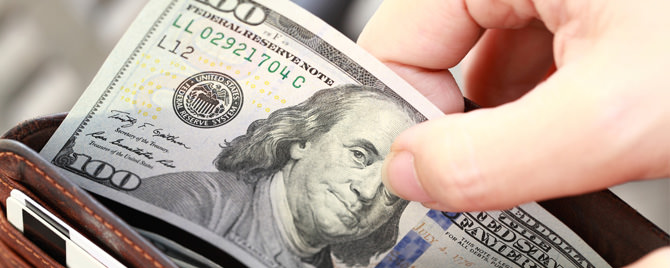Everyone has a different relationship with cash. Some carry and use it regularly while others never carry cash. Still others keep it on hand for emergencies but prefer a debit or credit card for everyday purchases. Can these behaviors provide insight into the future of cash holding for consumers? That’s the question explored in a new FedNotes paper, Who Holds Cash?
Using data from the 2012 Diary of Consumer Payment Choice (DCPC), the Federal Reserve’s Cash Product Office (CPO) analyzed survey responses from nearly 2,500 study participants. Findings from the DCPC show that 89 percent of the population holds cash to some extent (either sometimes or always). Additionally, the number of notes held by the public continues to grow with nearly $1.4 trillion in circulation worldwide.
In the new paper, researchers found that people who hold cash tend to have a larger preference for credit cards, and tend to be older and more affluent. Beyond this, different subgroups of people who hold cash exist, with some using cash exclusively as a payment instrument and others holding onto cash solely for emergency uses.
By looking at how often participants from the DCPC study held cash and how often they made cash transactions, four subgroups emerged:
- Cash Lovers: Always hold and always spend cash.
- Just-in-Case Holders: Always hold cash but never use it. They view cash as a contingency fund.
- Cash-Averse: Neither holds nor uses cash as a payment instrument.
- Limited Choice Spenders: Do not hold cash but consistently use it to make purchases.
How do your cash holding patterns match up to these profiles? Read the paper to find out.
You may also be interested in:
The views expressed here do not necessarily reflect the views of the management of the Federal Reserve Bank of San Francisco or of the Board of Governors of the Federal Reserve System.
